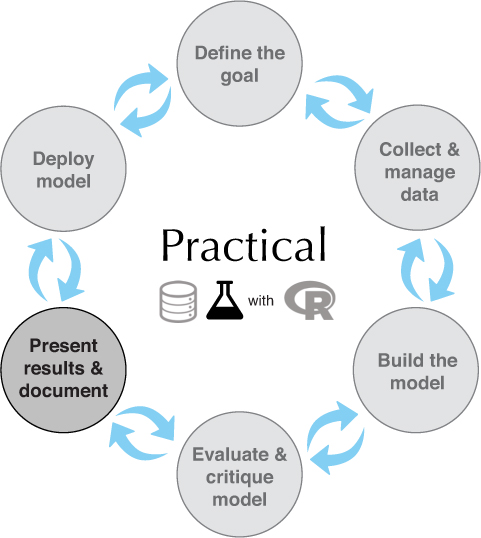This chapter covers
- Presenting your results to project sponsors
- Communicating with your model’s end users
- Presenting your results to fellow data scientists
In the previous chapter, you saw how to effectively document your day-to-day project work and how to deploy your model into production. This included the additional documentation needed to support operations teams. In this chapter, we’ll look at how to present the results of your project to other interested parties. As we see in the mental model (figure 12.1), this chapter is all about documentation and presentation.
We’ll continue with the example from the last chapter.
Example
Suppose your company (let’s call it WVCorp) makes and sells home electronic devices and associated software and apps. WVCorp wants to monitor topics on the company’s product forums and discussion board to identify “about-to-buzz” issues: topics that are poised to generate a lot of interest and active discussion. This information can be used by product and marketing teams to proactively identify desired product features for future releases, and to quickly discover issues with existing product features. Your team has successfully built a model to identify about-to-buzz topics on the forum. Now you want to explain the project results to the project sponsor, and also to the product managers, marketing managers, and support engineering managers who will be using the results of your model.
